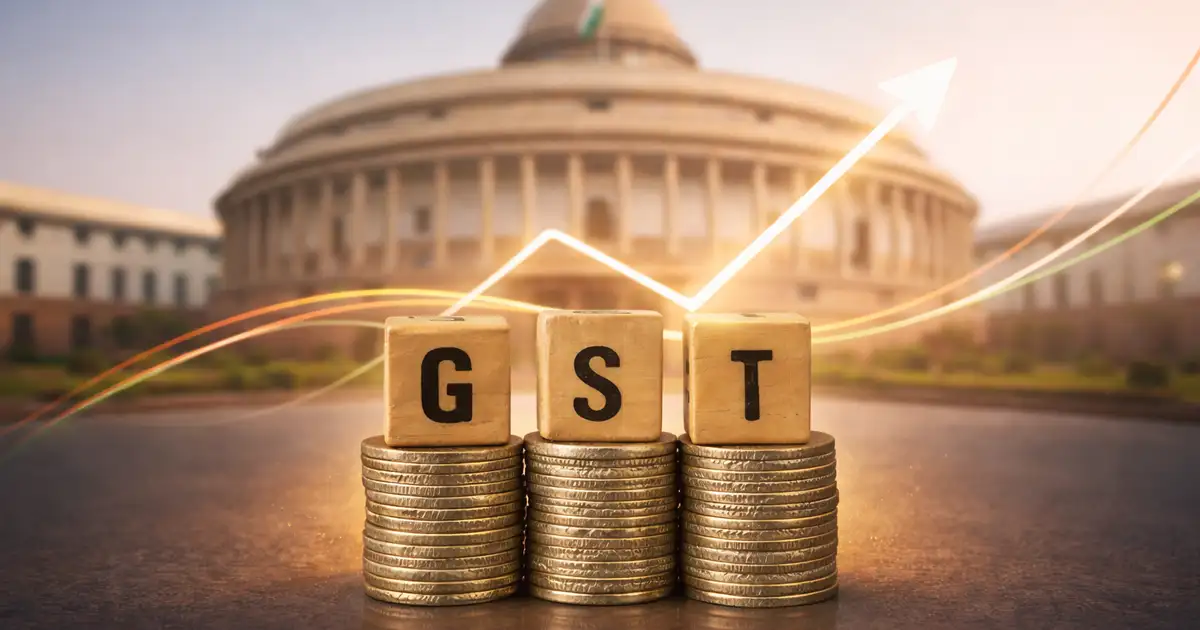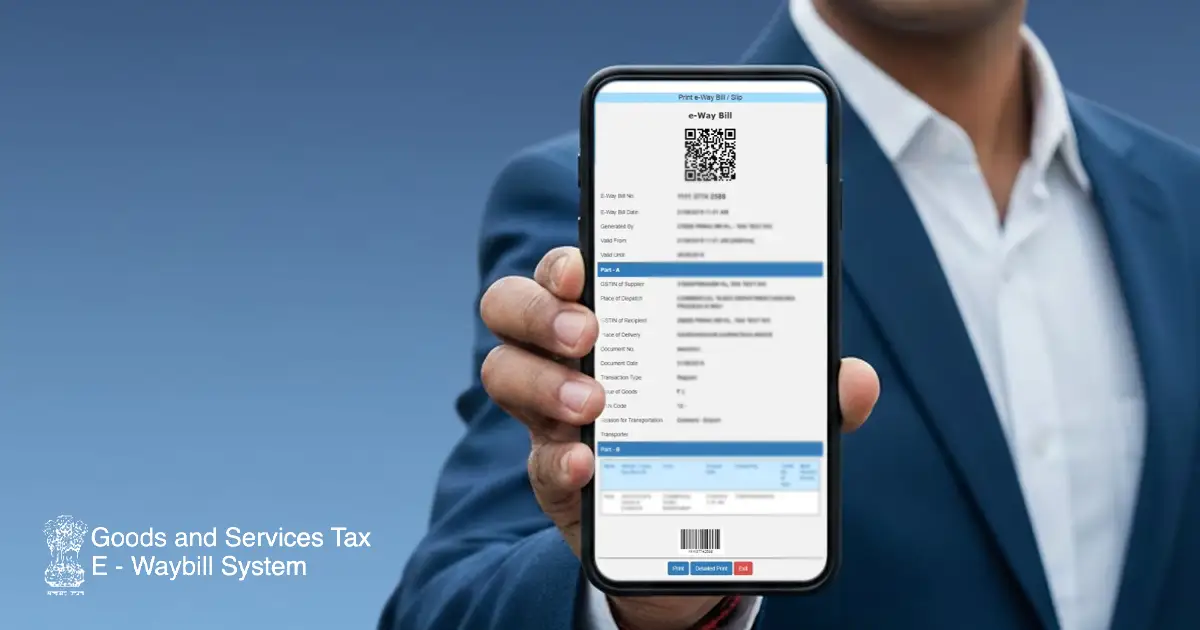
Imagine you plan to upgrade your business with high-performance computers and the latest electronics, but you realize that taxation significantly impacts the final price. With the implementation of GST on computers, businesses and consumers alike have faced changes in pricing, tax credits, and compliance obligations. Whether you’re an IT reseller, a startup investing in hardware, or a consumer upgrading your laptop, understanding GST electronics taxation is crucial for smarter financial planning.
With the updates on GST reforms 2.0 in 2025, the tax slabs, including 12% and 28% have been mostly removed. This change also impacts the electronics rates, including GST on laptops in India.
According to a report by Statista, the Indian IT hardware market is expected to grow to $15.3 billion by 2025, with a rising demand for laptops, desktops, and accessories. However, fluctuating GST slabs have influenced pricing strategies, consumer demand, and tax compliance requirements. This blog will discuss the GST rates India applies to computers, components, and IT hardware while exploring its broader impact on businesses. Let’s dive in!
What is the GST on Computers?
Computers and IT hardware fall under different GST slabs depending on their category. As per the Central Board of Indirect Taxes and Customs (CBIC), the GST on computers is structured as follows:
- Laptops, Desktop Computers – 18% GST
- Computer Monitors (up to 32 inches) – 18% GST
- Computer Monitors (above 32 inches) – 18% GST (same as televisions)
- Printers and Scanners – 18% GST
- External Storage Devices (Hard Drives, SSDs, Flash Drives, etc.) – 18% GST
- Networking Equipment (Routers, Modems, Switches, etc.) – 18% GST
Did You Know: Computer Monitors above 32 inches fell under the 28% GST tax slab before the GST 2.0 Reforms.
Before GST implementation in India, computers attracted excise duty (12.5%) and VAT (5-15%), making total taxation anywhere between 17.5% to 27.5%. With GST standardizing rates at 18% including GST on Graphics cards, it has simplified compliance but also increased the cost for some segments.
Additionally, businesses purchasing computers for commercial use benefit from Input Tax Credit (ITC), reducing overall tax liabilities. Consumers, however, bear the full GST burden, leading to slightly higher retail prices.
Computer GST Rates: Components Breakdown
Individual computer components have varying tax rates based on their classification:
| Component | GST Rate |
| Central Processing Units (CPUs) | 18% |
| Graphics Cards (GPUs) | 18% |
| Keyboards & Mice | 18% |
| Motherboards | 18% |
| RAM (Memory Modules) | 18% |
| Power Supply Units (PSUs) | 18% |
| Cooling Systems | 18% |
| Cables & Connectors | 12% |
While most components are taxed at 18% GST, accessories such as cables and connectors fall under 12% GST slabs to make them more affordable.
The uniform tax structure has simplified invoicing for sellers and eased tax filing obligations, benefiting large-scale distributors and retailers in particular.
As part of the GST 2.0 reforms implemented in September 2025, the Government of India introduced a new 40% GST slab to simplify the tax structure and reduce the number of tax categories. While most goods have now been rationalized into 5% and 18% slabs, the 40% rate applies only to a limited set of luxury and sin goods that were previously taxed at 28% plus cess.
For the electronics and computer sector, this new slab has minimal direct impact. Most standard electronic goods—such as laptops, desktops, printers, mobile phones, televisions, and accessories—remain taxed at 18%.
However, a few premium or luxury-grade electronic items may attract the higher 40% slab if they fall into specific categories identified by the GST Council, such as:
- High-end entertainment systems or ultra-large premium televisions
- Imported luxury smart devices or gadgets bundled with entertainment or gaming services
- Certain specialized electronics that fall under the luxury classification due to price or usage category
These cases are rare and niche, but businesses dealing in imported or high-value consumer electronics should verify their HSN code classification and applicable GST rate with a tax professional or through the official CBIC notifications.
Impact of GST on Computer Prices and IT Industry
The GST on computers has both advantages and challenges for businesses and consumers:
1. Increased Hardware Costs
Before GST, VAT rates varied between states, sometimes offering lower taxation on IT products. The uniform 18% GST has led to a slight increase in computer prices in states where the earlier VAT was lower.
2. Boost in E-Commerce Growth
With uniform GST slabs, online platforms such as Amazon, Flipkart, and Tata Cliq have seen increased computer hardware sales, as tax discrepancies between states no longer exist.
3. IT Hardware Imports & GST Compliance
Imported computers and electronics also attract Customs Duty + GST, leading to increased costs for businesses relying on international suppliers. However, companies registered under GST electronics compliance can claim Input Tax Credit (ITC) to offset costs.
Input Tax Credit (ITC) on Computer Purchases for Businesses
Businesses investing in computers, laptops, and IT hardware can avail of Input Tax Credit (ITC) under GST, reducing their overall tax liability.
Eligibility for ITC Claim on Computers:
- The business must be registered under GST.
- The purchase invoice must be in the company’s name.
- The purchased hardware must be used for business operations (not for personal use).
- The supplier must have filed their GST returns to ensure ITC claim eligibility.
For example, if a company purchases laptops worth ₹5,00,000 + 18% GST (₹90,000), they can claim ₹90,000 as ITC in their GST returns.
Claiming ITC reduces the net cost of purchasing computers and encourages companies to invest in high-quality IT infrastructure without incurring additional financial burdens.
GST Compliance for Computer Sellers and Distributors
1. GST Registration Requirement
- Businesses selling computers and accessories must register under GST if their turnover exceeds ₹40 lakh (₹20 lakh for service providers).
2. Filing GST Returns
- GSTR-1: Monthly/quarterly invoice reporting.
- GSTR-3B: Monthly summary return with tax payment.
- GSTR-9: Annual return summarizing all transactions.
3. E-Invoicing Compliance
- Businesses with turnover above ₹10 crore must generate e-invoices for all B2B transactions.
Failure to comply with computer GST compliance can lead to penalties and ITC rejections.
Read blog: Understanding GST Registration: A Simplified Guide for Businesses
Conclusion
The GST on laptops and IT hardware has streamlined tax compliance while maintaining a standard 18% GST slab for most electronics. While this has slightly increased computer prices, the Input Tax Credit (ITC) benefit offsets costs for businesses.
For companies dealing with computer GST compliance, RegisterKaro simplifies GST registration, ITC claims, and return filing. Our team ensures businesses stay compliant with GST slabs in India, minimizing tax liabilities and ensuring seamless operations.
With India’s digital transformation and rising demand for computers, having a clear understanding of GST electronics taxation is crucial for both businesses and consumers. As tax policies evolve, staying updated on GST filing regulations can help businesses optimize costs and maximize IT investments.
Visit RegisterKaro for expert GST solutions today.




